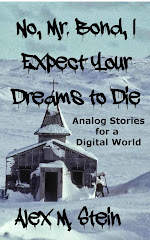So if you happened to play something that used profanity, chances are no one would notice. Or so went the reasoning of the soon-to-be-dismissed DJ on one of the eight college radio stations I could pick up in Junior High School.
But I'm getting ahead of myself.
Although it may be hard to believe these days, Rolling Stone magazine and the National Lampoon were once serious cultural touchstones (and considered "dangerously subversive" by mainstream society and the media).
But let me back up further.
 The 60s ended with a series of enormous events, any one of which would be enough to set off pop-cultural earthquakes: astronauts walked on the moon (or on a soundstage in Arizona, depending on what you believe), Woodstock brought half a million people to a farm to listen to music in the mud, Ted Kennedy drove off a bridge into shallow water at Chappaquidick Island (simultaneously killing a female campaign worker and his chance to ever become President), Monty Python's Flying Circus premiered on British television, and the Rolling Stones hired the Hell's Angels as security for a free concert (where the Angels killed a stoned Black guy with a gun who may have been trying to make Mick Jagger's fantasy of being assassinated while onstage come true).
The 60s ended with a series of enormous events, any one of which would be enough to set off pop-cultural earthquakes: astronauts walked on the moon (or on a soundstage in Arizona, depending on what you believe), Woodstock brought half a million people to a farm to listen to music in the mud, Ted Kennedy drove off a bridge into shallow water at Chappaquidick Island (simultaneously killing a female campaign worker and his chance to ever become President), Monty Python's Flying Circus premiered on British television, and the Rolling Stones hired the Hell's Angels as security for a free concert (where the Angels killed a stoned Black guy with a gun who may have been trying to make Mick Jagger's fantasy of being assassinated while onstage come true). And also the Beatles had kind of broken up, but were keeping that fact under wraps until they could finish the Let it Be album with Phil Spector.
Paul McCartney finally spilled the beans a week before his first solo album came out when he issued an "interview" (conducted by and with himself) where he declared that the Beatles had broken up. John Lennon, who wanted to announce the breakup himself months earlier but had been talked out of it by Paul, was pissed.
Lennon and Yoko Ono went to Los Angeles and underwent "primal scream therapy" with Arthur Janov. Lennon was encouraged by the sessions to confront his past traumas and he channelled some of that energy into his first real solo album John Lennon/Plastic Ono Band, a record of stark, powerful, confessional songs unlike anything that came before (or has come since).
Lennon also gave a sprawling interview to Jann Wenner of Rolling Stone where, over the course of nearly three hours, he put down George Harrison, called Paul's album "rubbish," insulted Mick Jagger and the Rolling Stones, and talked openly and candidly about his past and his talent. The interview took the happy mop-top Beatles image (and even the hippy-dippy, peace-and-love psychedelia of the Beatles' later years) and tore it apart. Lennon's words are shocking in their honesty and sometimes make him seem like a huge jerk. You can hear the entire interview (unedited except for boosting Wenner's off-mike questions) here.
The National Lampoon magazine led to off-Broadway reviews, a radio show, and a handful of records featuring writers and performers like Tony Hendra, Melissa Manchester, John Belushi, Michael O'Donoghue, and Christopher Guest. The first and best of the records was National Lampoon's Radio Dinner (which has now been out of print for a shamefully long time).
All of which brings me back to Junior High. Years after the Beatles broke up (and years after Radio Dinner came out), I was listening to a college radio station late at night when the DJ decided to play a National Lampoon song that I've thought for years was called "Genius is Pain." The real title is "Magical Misery Tour" (and most of the lyrics are taken from Lennon's own words in his Rolling Stone interview).
Although I wasn't familiar with all the references, I recognized instantly how biting and funny and sad this was (and how much it must have meant to fans of the magazine, who had to be completely torn up over the Beatles breaking up).
So from that night in Junior High until today, I remembered that National Lampoon parody but had never heard it again. My used-record store searches were doomed because I was searching for the wrong song title (and probably just glossed over the title "Magical Misery Tour"). But now, thanks to the YouTube, here it is (in all it's very NSFW glory and with my added warning not to play it around young children).
Later, I learned that the DJ was kicked off the air -- not for playing a record filled with dozens of profanities (that part, apparently was fine), but because the program director didn't think the song was funny. (To be fair, the program director also didn't like Monty Python, the Rutles, and the best of early Saturday Night Live, so his judgment definitely should not be trusted.)













